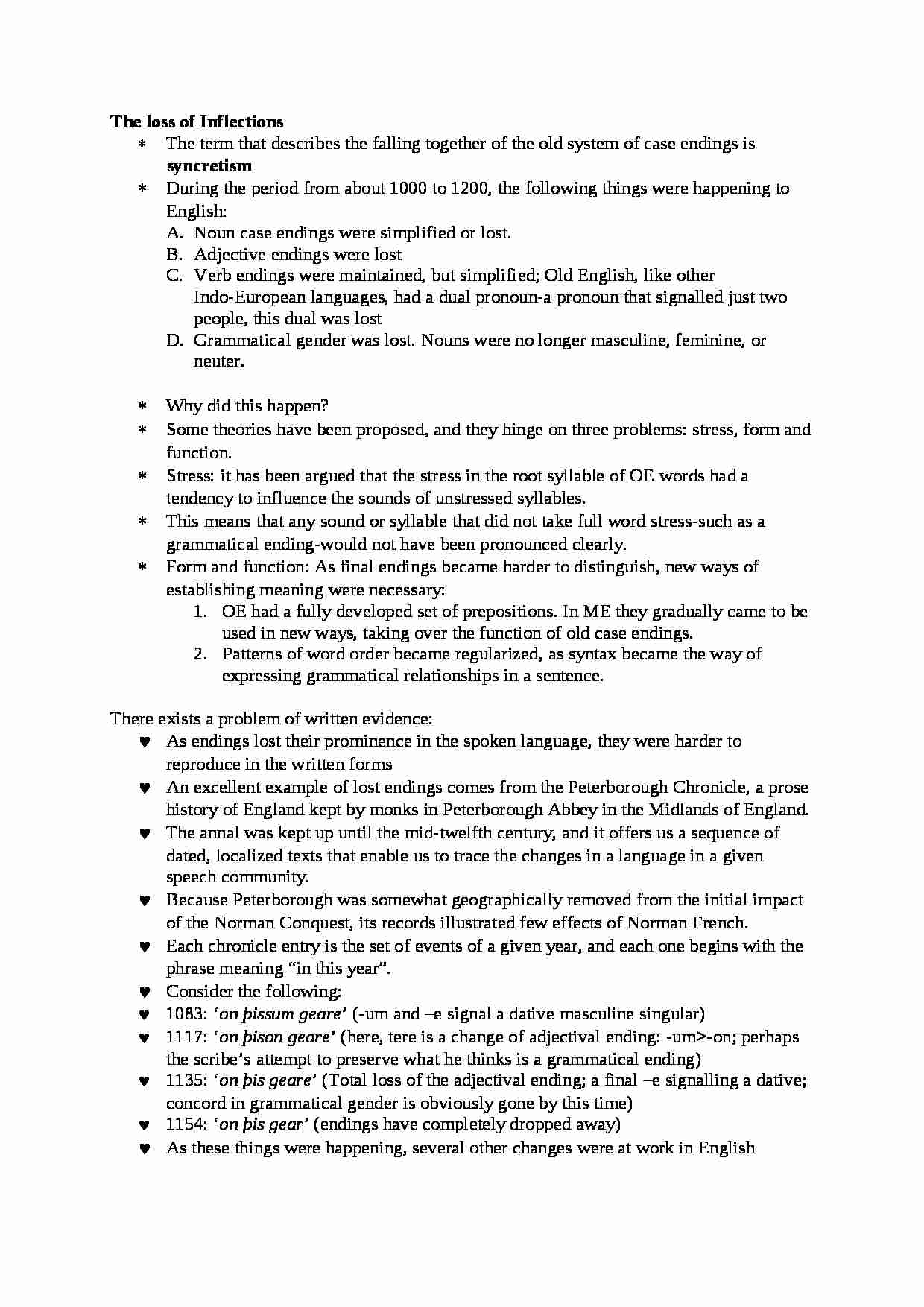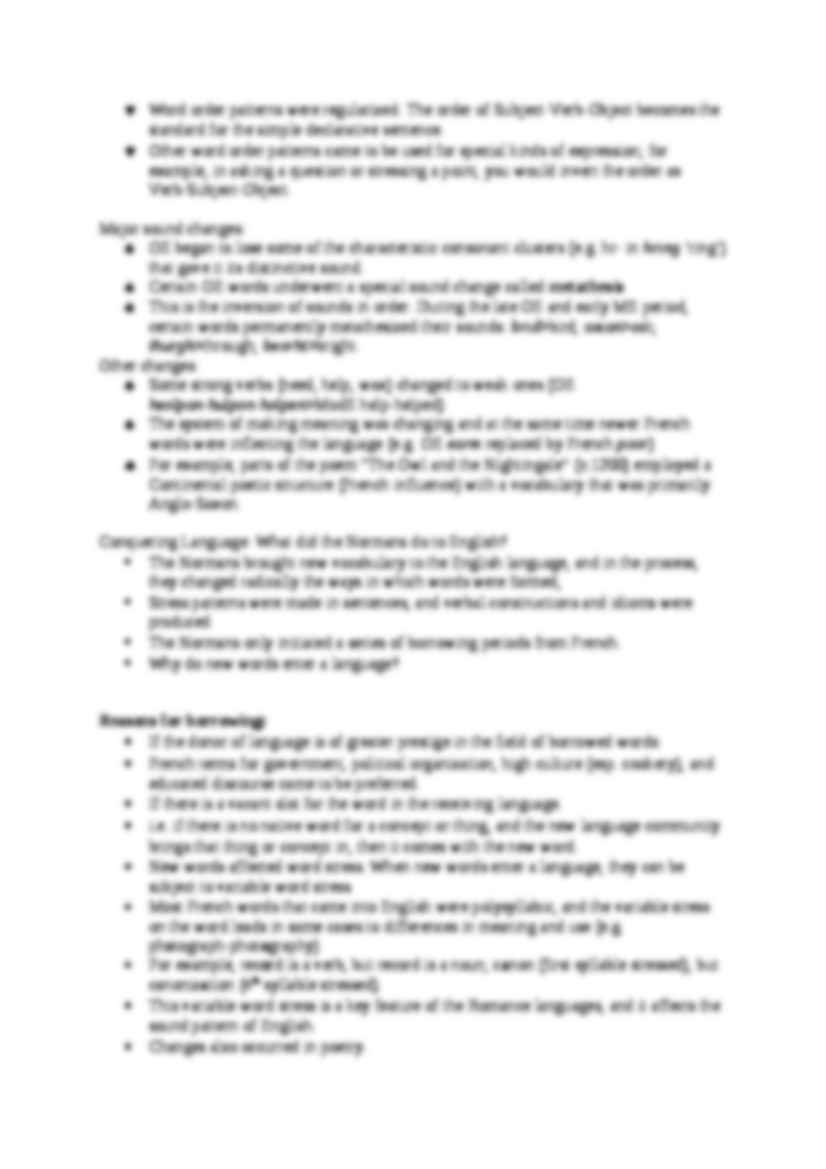To tylko jedna z 3 stron tej notatki. Zaloguj się aby zobaczyć ten dokument.
Zobacz
całą notatkę



The loss of Inflections
The term that describes the falling together of the old system of case endings is syncretism
During the period from about 1000 to 1200, the following things were happening to English:
Noun case endings were simplified or lost.
Adjective endings were lost
Verb endings were maintained, but simplified; Old English, like other Indo-European languages, had a dual pronoun-a pronoun that signalled just two people, this dual was lost
Grammatical gender was lost. Nouns were no longer masculine, feminine, or neuter.
Why did this happen?
Some theories have been proposed, and they hinge on three problems: stress, form and function.
Stress: it has been argued that the stress in the root syllable of OE words had a tendency to influence the sounds of unstressed syllables.
This means that any sound or syllable that did not take full word stress-such as a grammatical ending-would not have been pronounced clearly.
Form and function: As final endings became harder to distinguish, new ways of establishing meaning were necessary:
OE had a fully developed set of prepositions. In ME they gradually came to be used in new ways, taking over the function of old case endings.
Patterns of word order became regularized, as syntax became the way of expressing grammatical relationships in a sentence.
There exists a problem of written evidence:
As endings lost their prominence in the spoken language, they were harder to reproduce in the written forms
An excellent example of lost endings comes from the Peterborough Chronicle, a prose history of England kept by monks in Peterborough Abbey in the Midlands of England.
The annal was kept up until the mid-twelfth century, and it offers us a sequence of dated, localized texts that enable us to trace the changes in a language in a given speech community.
Because Peterborough was somewhat geographically removed from the initial impact of the Norman Conquest, its records illustrated few effects of Norman French.
Each chronicle entry is the set of events of a given year, and each one begins with the phrase meaning “in this year”.
Consider the following:
1083: `on þissum geare' (-um and -e signal a dative masculine singular)
1117: `on þison geare' (here, tere is a change of adjectival ending: -um-on; perhaps the scribe's attempt to preserve what he thinks is a grammatical ending)
1135: `on þis geare' (Total loss of the adjectival ending; a final -e signalling a dative; concord in grammatical gender is obviously gone by this time)
1154: `on þis gear' (endings have completely dropped away)
As these things were happening, several other changes were at work in English
(…)
… word leads in some cases to differences in meaning and use (e.g. photograph-photography)
For example, record is a verb, but record is a noun; canon (first syllable stressed), but canonization (4th syllable stressed).
This variable word stress is a key feature of the Romance languages, and it affects the sound pattern of English.
Changes also occurred in poetry.
OE poetry was alliterative in structure…
... zobacz całą notatkę






Komentarze użytkowników (0)